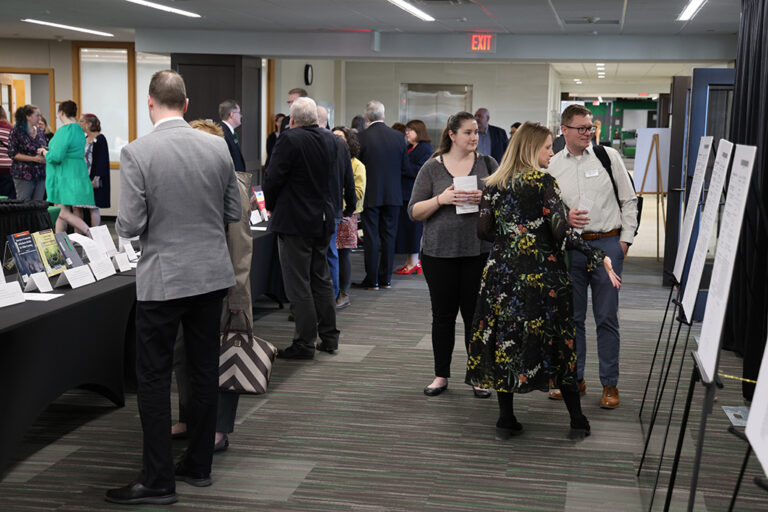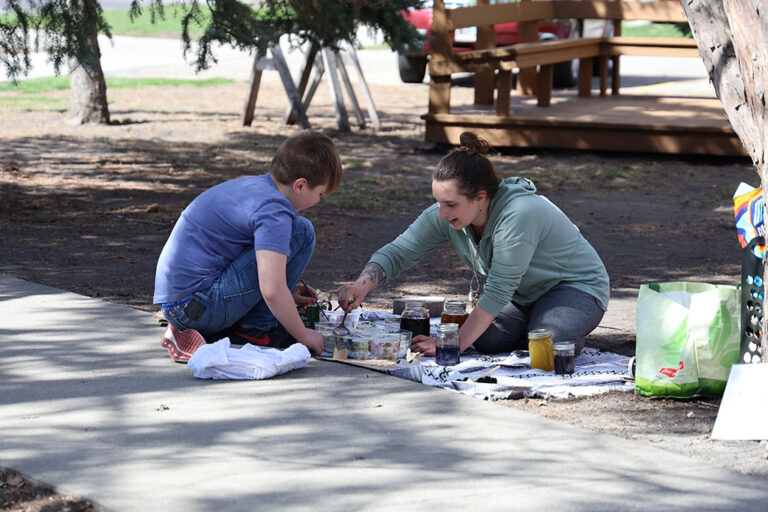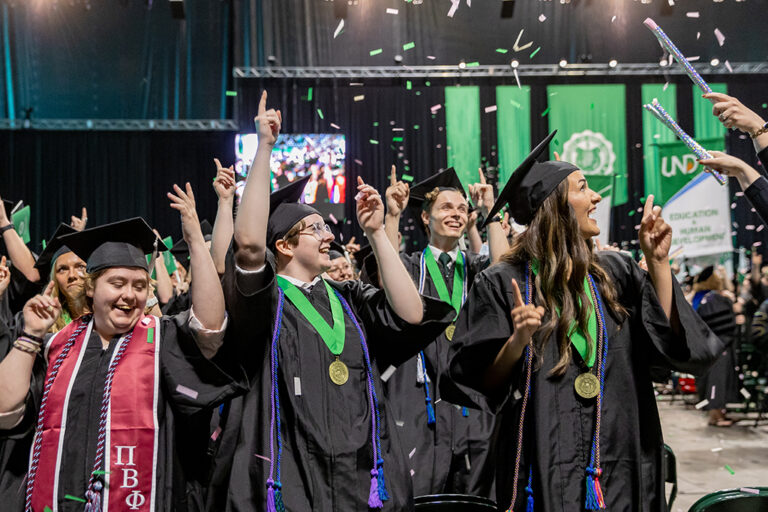Fanning the flame for positive change
UND Teach-in looks to sustain conversation on racism and diversity

When you get a spark, you have the ability to start a fire.
That’s what happened at the “Outrage Summit” hosted by the UND College of Arts & Sciences back in September, when UND Social Work Professor Melanie Sage had an epiphany during one of the summit sessions.
“We were at a session on the Dakota Access Pipeline,” said Rebecca Weaver-Hightower, UND English professor. “Melanie stood up and asked, ‘Why aren’t we having more conversations like this as an educational institution?’”
Instead of letting the idea sit and die, Weaver-Hightower and Sage worked together with a group of faculty, staff and students to pull together a campus-wide Teach-in on racism and diversity.
A fluid crowd of nearly 580 people showed up Friday in the Memorial Union Loading Dock for the Teach-in on diversity and racism. During four separate sessions, a wide range of topics was discussed, including tribal sovereignty and stereotypes, the tough daily lives of undocumented workers, and group discussions of racism on campus.
“It was obviously something that people were excited to have access to, and people showed up,” Sage said. “After the Snapchat incidents, people felt we weren’t talking about this enough.”
Sage was referring to racially charged photos published on Snapchat early in the semester that made headlines across the nation and galvanized several members of the UND community to push for change.
“We were in a place where we felt it was time to do something,” Sage said. “We needed to move fast and put something together to demonstrate that this is a value for the University.”
Learning to learn
The Teach-in opened with a packed room listening to two different versions of the song “Jet Airliner.” Jack Russell Weinstein, Chester Fritz Distinguished Professor of Philosophy, wanted to show students how the Steve Miller Band version that most of them have heard took on a whole different meaning than the original, emotionally heavy version by Paul Pena.
“When you have to think about things, it’s very hard to do it in a new way,” Weinstein said.
But that’s the point of a university, Weinstein said. A university exists to teach students to learn on their own.
“I think a lot of people here are expecting to be preached to,” Weinstein said. “My job is to get you to try to pivot a bit and try to think about things in a different way.”
Others speaking in the first session were students, Eric Souvannasacd and LaJuan Willis.

The second session focused on a variety of Native American topics, ranging from tribal sovereignty to the Dakota Access Pipeline protests, with UND Communication Professor Mark Trahant and Vice Provost Steve Light joining.
Jaynie Parrish, American Indian Studies instructor and member of the Navajo Nation, let the group know that they had a lot more to learn, and that it would be a big step in the right direction if future generations had an in-depth education on Native American history before entering college.
“In order for you to learn about me, my family and my culture, we have to have a broader education experience,” said Parrish. “I’m a big proponent of bringing those other pieces into the classroom.”
Face to face
During the third session, led by Chester Fritz Distinguished Professor of English Sharon Carson, Counseling Psychology instructor Tamba-Kui Bailey and students Ashley Hutchinson and Lauren Chapple, the room was split up into smaller groups to foster strong dialogue. Group members shared personal experiences, discussed diversity and racism on campus, and relayed what could be done to make it more inclusive.
English graduate student Ian Galbraith did a good job at contributing to the conversation, showing his perspective as someone who moved to Grand Forks from Los Angeles.
“We need to help each other and keep pushing,” Galbraith said. “If we keep talking about it and thinking about it as an institution, we benefit from that. We become a better place when we’re able to show each other who we are, talk about it and grow.”
The Teach-in closed with a session on the struggles of undocumented immigrants in the United States, led by UND College of Education & Human Development faculty members David Nguyen and Zelideh Martinez, and Counseling Psychology student Ayli Carrerro Pinedo. The group watched the film “Documented,” which followed the daily concerns and fears faced by Jose Vargas, a Pulitzer Prize-winning reporter.

Grass roots
Several members of the UND administration attended the event as well. Though UND President Mark Kennedy couldn’t attend because of a prior commitment, he did send a very positive email, Weaver-Hightower said.
“UND administrators have been very supportive and even appreciative of us getting this mobilized,” Weaver-Hightower said. “This is grass roots. It’s not them telling us what to do. This is faculty, staff and students all working together to have this conversation.”
It is uncertain whether events like Friday’s Teach-in will become more of a UND staple, but there are plenty of faculty, staff and students who are striving to keep the fire burning.
“This is just one of many things that can be done,” Sage said. “There are many things happening across campus, like the new Diversity Advisory Council. We hope conversations like these will deepen and we’ll continue to talk more.”


